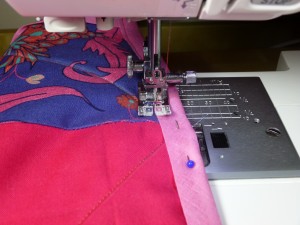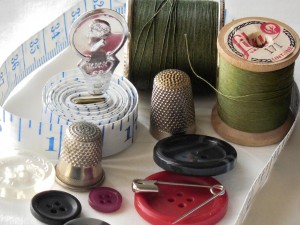Working on repetitive tasks seems to be an ideal match for autistic workers in Bangladesh’s garment industry. Reports from August 2015 suggest, the Bangladesh Garment Manufacturers and Exporters Association (BGMEA) plans to help to recruit autistic workers instantly for the ready-made garment sector (RMG).
No wonder autistic workers will be a good match for the RMG sector. Some people probably believe, autistic workers will be able to follow strict routines even if these are repetitive. President of the Parents Forum for Differently Abled, Sajida Rahman Danny said: “It’s not charity. They are honest and cannot lie. They are perfect. They are focused. They’ll do what they can. They can do non-stop similar work that other workers will not do. They follow routine strictly.”
Very recently, US licensed, school psychologist, Saima Wazed Hossain Putul presented a set of guidelines to the BGMEA on how to recruit autistic workers, according to reports. These guidelines were presented in an event on the 20th August 2015. So the BGMEA would like to try and create job opportunities for these workers, apparently.
BGMEA president, Atiqul Islam said: “Like others, autistic people also should have a better and respectable life. To achieve this, BGMEA wants to help them get jobs in the RMG sector and provide related training. We’ll give them work, they give in return. Then we can utter Made in Bangladesh with more pride. But it will be possible only when efforts are made together.”
It’s claimed, the garment industry is the largest industry in Bangladesh and it currently employs approximately 4million workers. The BGMEA aims to make this industry sustainable by employing autistic workers. Putul seems to feel, everyone is included. Putul talks about one of the requirements. She said: “[Autistic workers] will need some compassion.”
A few of the areas where these autistic people can work, are in quality control, numbering, placing stickers, removing extra thread, collar pressing, button matching, cleaning and poly packing. This is not all. Some of the other areas include, working on computers, administrative tasks, making greeting cards/yearly calendars and work as security guards and liftmen, apparently.
Bdnews24.com (Bangladesh’s first internet newspaper) recently reported autistic workers probably cannot pick up self-care tasks such as dressing, self-feeding etc just by watching and imitating. It is sometimes thought that autistic workers usually do not make eye contact with people. These difficulties begin to show up in the first three years of their life, some people think. However, it is not yet confirmed, why.
No matter how many difficulties these autistic workers have, their safety seems to be of high importance and is taken care of, claimed the BGMEA.com news page. Canadian High Commissioner to Bangladesh, Heather Cruden said: “Canadian buyers purchase around $1.10billion worth of RMG products from Bangladesh per annum. Terming formation of workers database and ensuring workers safety in RMG factories as major challenges of the country’s apparel industry. Canada is providing necessary support to improve the working place of RMG factories, workers safety and labour rights.”
There is a chance that autistic workers face challenges. Some autistic youth workers end up facing a tougher challenge, later on in their life. But Chairperson of the National Advisory Committee on Autism and NDDs, Saima Wazed Hossain tried to encourage people to think how the autistic community can be turned into a workforce. Hossain said: “It’s not about giving one or two jobs. The industry slogan Made in Bangladesh will be a reality when there will be no one left behind.”























